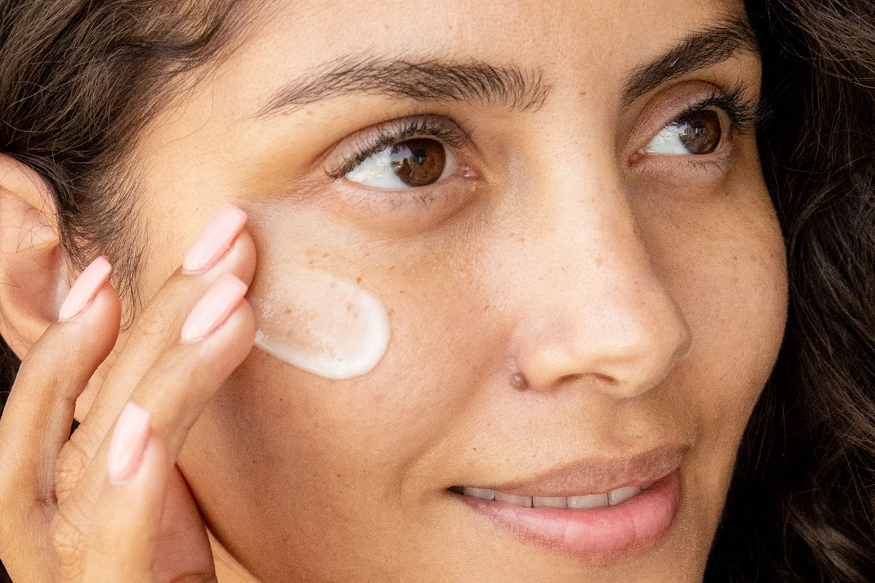How Vitamin C Serums Are Redefining Inclusivity in the Beauty Industry
5 min read
In recent years, the beauty industry has undergone a powerful transformation. Once dominated by narrow definitions of beauty, the industry is now embracing inclusivity—acknowledging diverse skin tones, concerns, and cultural perspectives. At the heart of this shift is skincare, particularly the growing popularity of vitamin C serums. More than just a trendy addition to beauty routines, these formulations are becoming an equalizer, offering solutions that benefit a wide range of people. From brightening dull skin to reducing hyperpigmentation, vitamin C is celebrated for its universal appeal.
But beyond its scientific merits, vitamin C serums represent something larger: a movement toward inclusivity and accessibility in beauty. By looking at the science, cultural impact, and consumer demand, it’s clear how this single category of products is helping redefine what the beauty industry stands for.
Why Vitamin C Has Universal Appeal
Vitamin C is a powerful antioxidant that helps neutralize free radicals, promote collagen production, and brighten uneven skin tone. These benefits make it an essential part of nearly every skincare routine, regardless of age, gender, or skin type.
For people struggling with uneven tone, vitamin C acts as one of the best products for dark spots, visibly improving areas of discoloration caused by acne, sun damage, or hormonal changes. Its broad utility is what makes it so inclusive—there is no single demographic that can’t benefit from vitamin C’s effects.
Unlike many other treatments that are tailored to specific skin types, vitamin C serums work across the spectrum, making them one of the most universal solutions available in skincare.
The Role of Vitamin C in Addressing Hyperpigmentation
Hyperpigmentation is one of the most common concerns across all skin tones. However, in deeper complexions, it often presents as stubborn dark spots that take longer to fade. Historically, many skincare products failed to address these challenges, leaving people with melanin-rich skin underrepresented.
This is where vitamin C steps in. Targeting the enzyme responsible for melanin production, it helps reduce the intensity of dark spots while brightening surrounding skin. Consumers now search for the best vitamin C serum specifically for tackling these issues, reflecting how the ingredient is bridging gaps in an industry that often ignores them.
By addressing a universal skin concern, vitamin C has become an agent of inclusivity—creating one solution that benefits a diverse range of consumers.
Social Media and the Push for Representation
The rise of social media platforms like Instagram, TikTok, and YouTube has amplified the conversation around skincare inclusivity. Influencers from all backgrounds share their routines, before-and-after results, and recommendations, bringing greater awareness to products that work universally.
Vitamin C serums frequently go viral because they produce visible, real-world results. Whether it’s a young Gen Z creator showing their acne scars fading, or a Millennial highlighting improvements in dull, tired skin, these results resonate across demographics. When consumers see people with similar skin concerns using vitamin C successfully, they are more likely to adopt it themselves.
This grassroots promotion reinforces the idea that inclusivity isn’t just about representation in advertising but also about performance across diverse communities.
Millennials and Gen Z Driving Inclusivity in Skincare
The younger generations have been instrumental in reshaping the beauty industry. Millennials demand transparency about ingredients, while Gen Z pushes for authenticity and inclusivity. Together, they are responsible for the surge in popularity of multifunctional products like vitamin C serums.
These consumers aren’t just looking for hype—they want results. By sharing experiences online, they’ve made the best vitamin C serum a global must-have, while also holding brands accountable for creating solutions that work for every skin tone.
Importantly, both generations view skincare as more than vanity; it’s an extension of wellness and self-care. This mindset elevates products like vitamin C serums into essentials, not luxuries, for maintaining skin health across a broad spectrum of people.
Inclusivity Through Ingredient Innovation
Vitamin C is notoriously unstable, meaning it can degrade quickly if not formulated properly. Advances in skincare science have led to more stable versions and improved delivery systems, making it accessible to all consumers.
These innovations are crucial for inclusivity because they allow vitamin C to be used safely and effectively across skin types, from oily and acne-prone to sensitive and dry. Paired with other actives, such as hyaluronic acid or niacinamide, vitamin C serums now target multiple concerns at once. This flexibility ensures that consumers aren’t forced into a one-size-fits-all approach but instead find tailored options for their unique needs.
The push for stability and accessibility in formulation reflects the broader beauty industry’s goal: inclusivity through science.
The Emotional Side of Inclusivity in Beauty
Beyond the science, there’s an emotional layer to why vitamin C serums are so significant. For decades, people with darker skin tones or persistent skin concerns often felt ignored by mainstream beauty. By seeing accessible, effective solutions like vitamin C serums promoted and celebrated, these individuals feel recognized and validated.
Hyperpigmentation, dark spots, and uneven tone can affect self-esteem. When a solution like a skin brightening serum visibly improves these issues, it boosts confidence. This emotional impact is just as powerful as the physical results, showing why inclusivity is not only about the product but also about how it makes people feel.
Affordability and Accessibility as Drivers of Inclusivity
One of the strongest reasons vitamin C serums are redefining inclusivity is their availability at nearly every price point. Unlike professional treatments such as chemical peels or laser therapy, vitamin C serums are accessible both online and in local stores.
This affordability democratizes skincare. Whether someone is seeking the best products for dark spots at a premium level or looking for an affordable alternative, they can access the benefits of vitamin C. The wide range of options ensures no one is excluded from enjoying healthier, brighter skin.
The Future of Inclusivity in Skincare
The movement toward inclusivity is only accelerating. As more people embrace skincare routines globally, the demand for universal solutions will continue to rise. Vitamin C serums are paving the way by showing how one product can address concerns shared by people of all ages, genders, and skin tones.
Looking forward, we can expect continued innovation in formulations, packaging, and accessibility. Inclusivity will remain a central focus, with the best vitamin C serum evolving to meet the needs of an even broader consumer base.
Vitamin C serums are more than just a skincare trend—they are a symbol of inclusivity in the beauty industry. By addressing universal concerns like dark spots, dullness, and uneven tone, these products have bridged gaps that once excluded diverse communities.
From social media influence and generational demands to scientific innovation and emotional impact, vitamin C is redefining what it means to create beauty solutions for everyone.
Whether you’re seeking the best vitamin C serum for your routine or exploring products for dark spots that suit your needs, one thing is clear: vitamin C has become an essential equalizer, proving that inclusivity in beauty is not only possible but also transformative.







